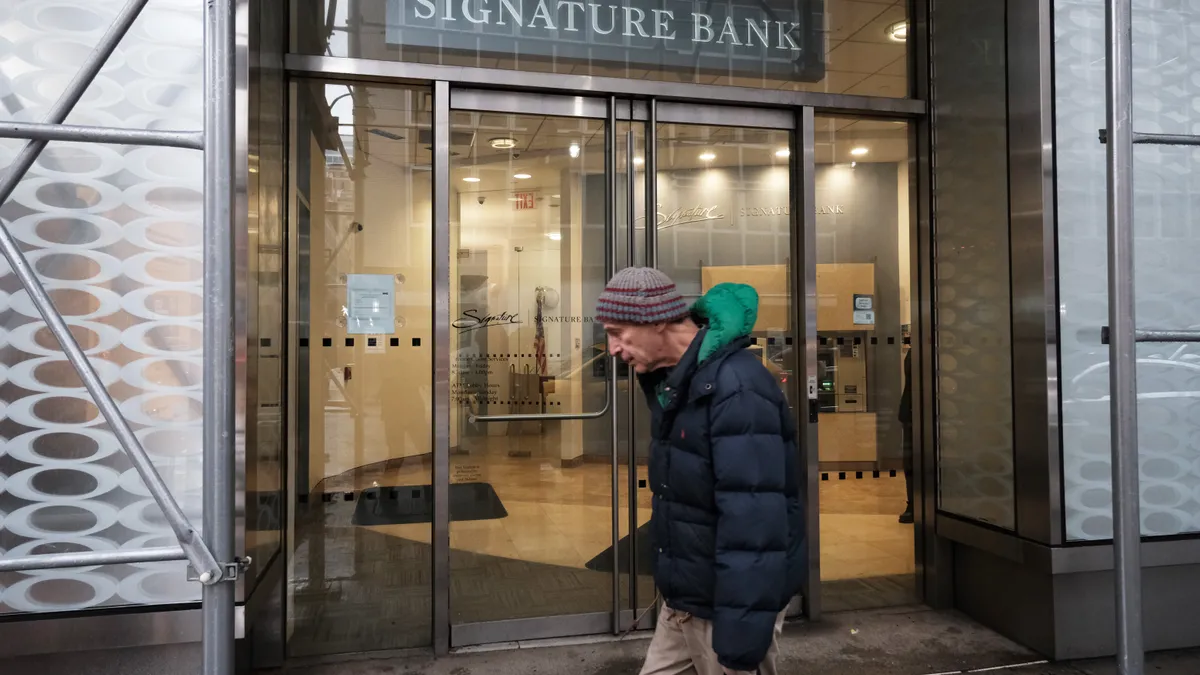Dive Brief:
- Failed Signature Bank had a major foothold in the New York City rental market, financing approximately 3,000 multifamily buildings that were home to about 80,000 tenants, according to University Neighborhood Housing Program’s Building Indicator Project data cited by Gothamist.
- Unlike also-recently shuttered Silicon Valley Bank, which made its mark working with tech companies, Signature was a major player in multifamily. The bank’s total portfolio of multifamily lending was $19.5 billion as of Dec. 31, 2022, its second-largest loan balance category, according to its annual report. It originated $5.4 billion worth of apartment loans throughout last year.
- Signature ended 2022 with $33.13 billion in total commercial real estate loans. The company increased commercial real estate loans by $4.82 billion, or 17%, since the year before, “with growth primarily derived from the multifamily lending segment,” according to the annual report.
Dive Insight:
New York’s Department of Financial Services closed Signature Bank on Sunday “to protect depositors” and appointed the Federal Deposit Insurance Corp. as the bank’s receiver, the state regulator said. The FDIC then transferred all Signature Bank deposits and substantially all of the company’s assets to Signature Bridge Bank, which will be operated by the regulator.
A number of Signature’s business customers, concerned over the FDIC’s $250,000 limit on deposit insurance, pulled their deposits from the bank Friday after the failure at SVB. The bank’s closure marks the third-largest bank failure in U.S. history.
Signature Bank had begun to branch out before its failure. Last year, its commercial real estate team, active on the East Coast since 2007, began to cover the West Coast.
Still, Signature helped build its business with apartment loans in New York City. It has been a top-three apartment lender in the city since 2009, according to its 2022 annual report.
Michael Feldman, owner of property manager Choice New York Cos., said Signature was “at the forefront of real estate lending and banking in the New York metro for a prolonged period of time,” but the overall effects should be minimal.
“Since the depositors have been guaranteed, in the end, this should be just another hassle and inconvenience for real estate owners rather than an apocalyptic event,” he told Multifamily Dive.
Others applauded the government for taking steps to backstop Signature.
“This is a very big deal for New York City housing,” tweeted Jay Martin, executive director of the landlord group Community Housing Improvement Program, a trade association for owners of rent-stabilized rental properties across New York City. “Many multifamily businesses bank with Signature and similar regional banks. Quick action here to make depositors whole was necessary and it’s good news to see the Fed assuring that.”













